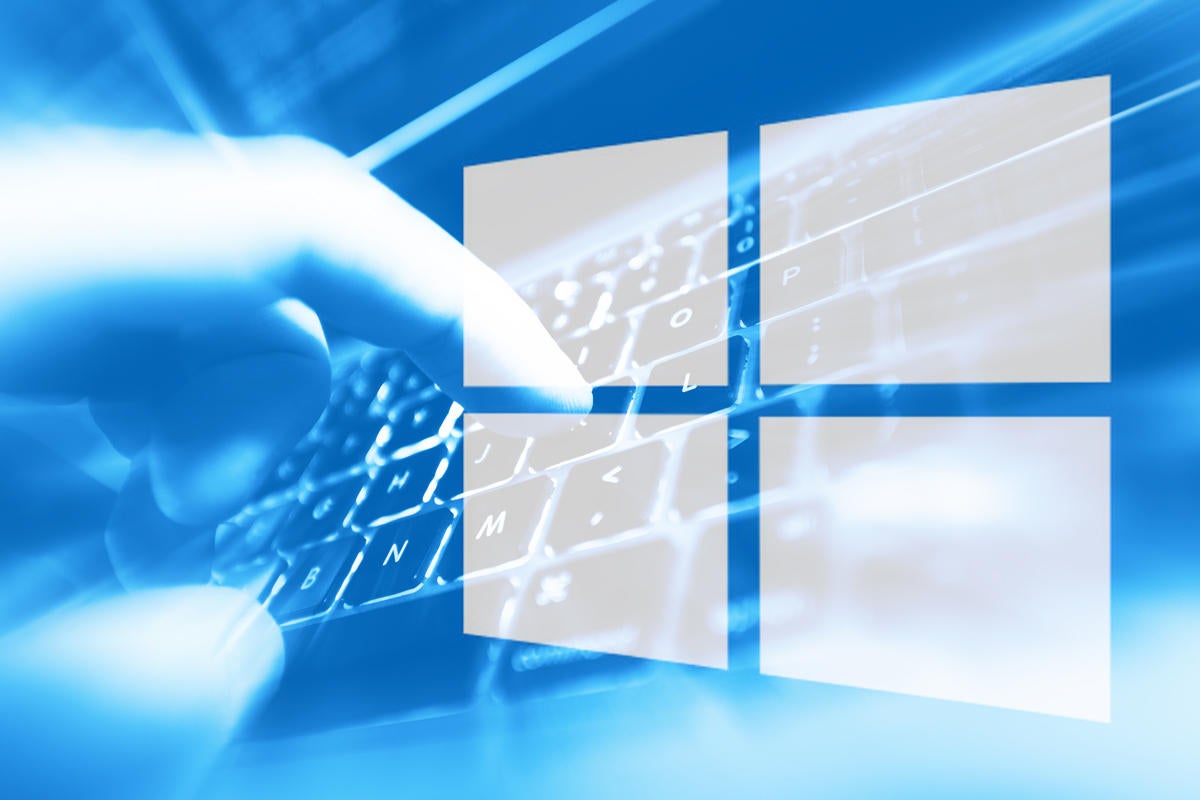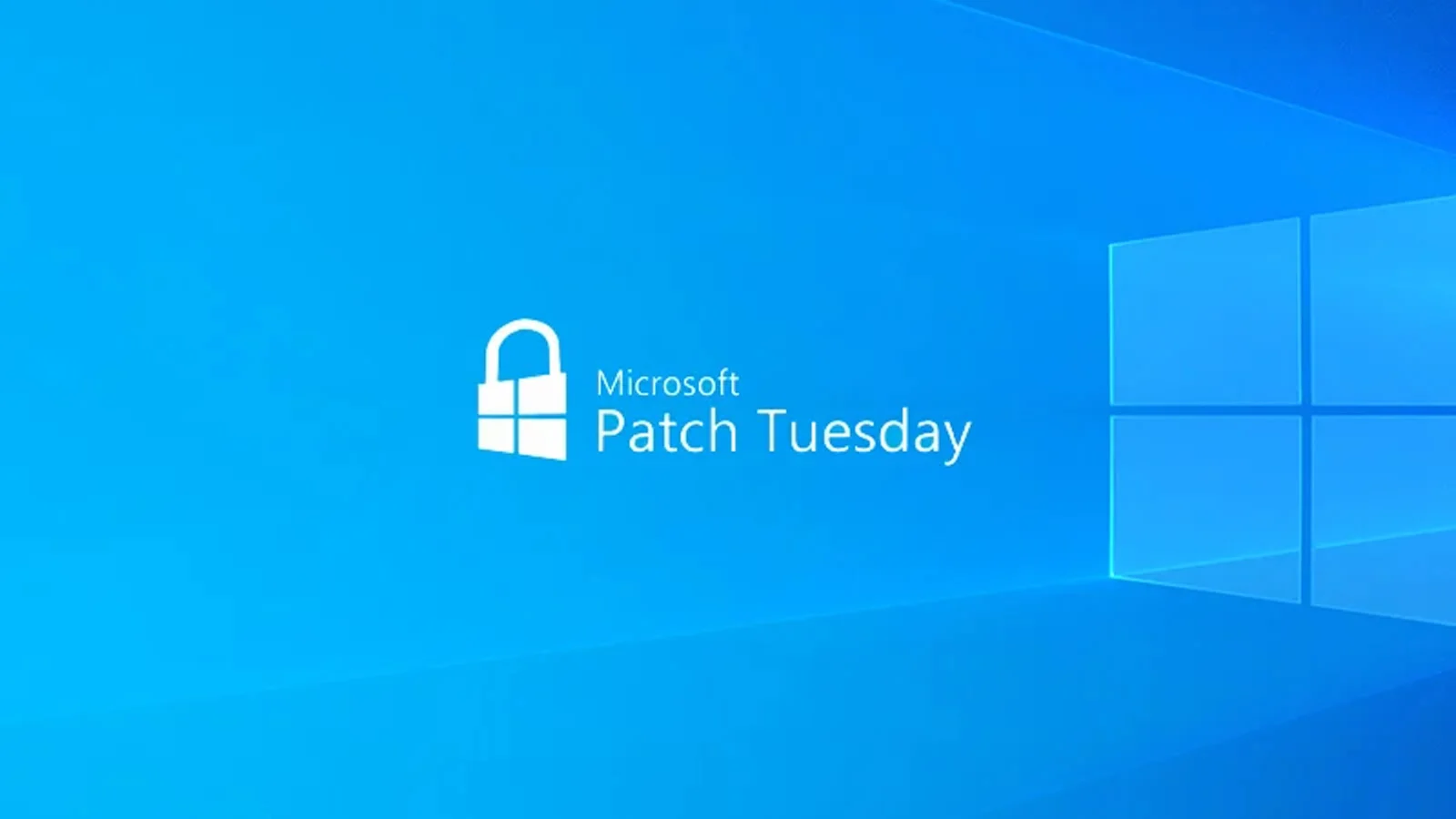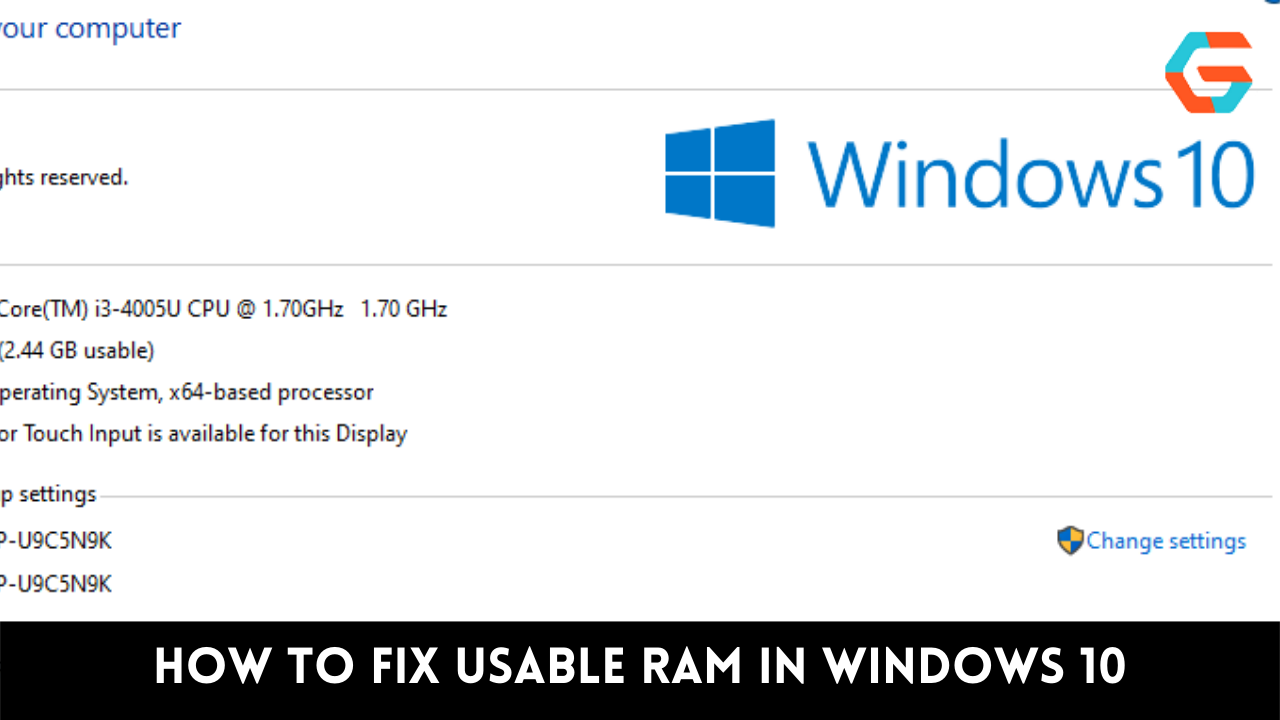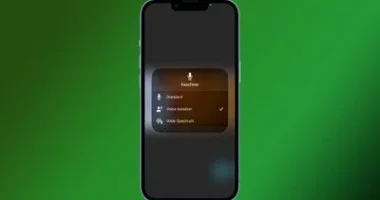Today is Microsoft’s April 2023 Patch Tuesday, and security updates fix 98 bugs, including one actively exploited zero-day vulnerability.
Seven bugs have been labeled “Critical” because they allow remote code execution, which is the worst kind of bug.
Below is a list of each vulnerability category and the number of bugs in each one:
- 20 Elevation of Privilege Vulnerabilities
- 8 Security Feature Bypass Vulnerabilities
- 45 Remote Code Execution Vulnerabilities
- 10 Information Disclosure Vulnerabilities
- 9 Denial of Service Vulnerabilities
- 6 Spoofing Vulnerabilities
This number doesn’t include the seventeen holes that were fixed in Microsoft Edge on April 6th.
You can read our articles about the new Windows 11 KB5025239 cumulative update and the Windows 10 KB5025221 and KB5025229 updates to learn more about the non-security updates that came out today.
One Zero-Day Fixed

This month’s Patch Tuesday fixes an attack that took advantage of a zero-day vulnerability.
Microsoft calls a security hole a “zero-day” if it is known to the public or is being used even though there is no official fix.
In today’s updates, the zero-day vulnerability that is being actively used is:
CVE-2023-28252: Elevation of Privilege Vulnerability in the Windows Common Log File System Driver
Microsoft has fixed a bug in the Windows CLFS driver that could allow a user’s privileges to be raised to SYSTEM, which is the highest user privilege level in Windows.
“If an attacker used this flaw successfully, they could gain SYSTEM privileges,” says Microsoft’s warning.
Microsoft says that Genwei Jiang with Mandiant and Quan Jin with DBAPPSecurity WeBin Lab found the weakness.
But Kaspersky says that they also found and told Microsoft about the CVE-2023-28252 flaw after seeing it used in Nokoyawa ransomware attacks.
Even though they weren’t being used often, Microsoft Office, Word, and Publisher had remote code execution flaws that could be used by opening malicious documents. These flaws were fixed today.
These security holes are known as CVE-2023-28285, CVE-2023-28295, CVE-2023-28287, and CVE-2023-28311.
Since these kinds of vulnerabilities are useful for phishing campaigns, threat actors are likely to try to figure out how they can be used to spread malware.
Because of this, users of Microsoft Office should install today’s security updates as soon as they can.
Recent Updates from Other Companies
Other vendors who released updates in April 2023 include:
- Apple released a security updates to fix two actively exploited zero-days in iOS and macOS.
- Cisco released security updates for multiple products.
- Fortinet released security updates for multiple products.
- Google released the Android April 2023 and Google Chrome security updates.
- SAP has released its April 2023 Patch Day updates.
The April 2023 Patch Tuesday Security Updates
Below is the complete list of resolved vulnerabilities in the April 2023 Patch Tuesday updates.
To access the full description of each vulnerability and the systems it affects, you can view the full report here.
| Tag | CVE ID | CVE Title | Severity |
|---|---|---|---|
| .NET Core | CVE-2023-28260 | .NET DLL Hijacking Remote Code Execution Vulnerability | Important |
| Azure Machine Learning | CVE-2023-28312 | Azure Machine Learning Information Disclosure Vulnerability | Important |
| Azure Service Connector | CVE-2023-28300 | Azure Service Connector Security Feature Bypass Vulnerability | Important |
| Microsoft Bluetooth Driver | CVE-2023-28227 | Windows Bluetooth Driver Remote Code Execution Vulnerability | Important |
| Microsoft Defender for Endpoint | CVE-2023-24860 | Microsoft Defender Denial of Service Vulnerability | Important |
| Microsoft Dynamics | CVE-2023-28314 | Microsoft Dynamics 365 (on-premises) Cross-site Scripting Vulnerability | Important |
| Microsoft Dynamics | CVE-2023-28309 | Microsoft Dynamics 365 (on-premises) Cross-site Scripting Vulnerability | Important |
| Microsoft Dynamics 365 Customer Voice | CVE-2023-28313 | Microsoft Dynamics 365 Customer Voice Cross-Site Scripting Vulnerability | Important |
| Microsoft Edge (Chromium-based) | CVE-2023-28284 | Microsoft Edge (Chromium-based) Security Feature Bypass Vulnerability | Moderate |
| Microsoft Edge (Chromium-based) | CVE-2023-1823 | Chromium: CVE-2023-1823 Inappropriate implementation in FedCM | Unknown |
| Microsoft Edge (Chromium-based) | CVE-2023-28301 | Microsoft Edge (Chromium-based) Tampering Vulnerability | Low |
| Microsoft Edge (Chromium-based) | CVE-2023-1810 | Chromium: CVE-2023-1810 Heap buffer overflow in Visuals | Unknown |
| Microsoft Edge (Chromium-based) | CVE-2023-24935 | Microsoft Edge (Chromium-based) Spoofing Vulnerability | Low |
| Microsoft Edge (Chromium-based) | CVE-2023-1819 | Chromium: CVE-2023-1819 Out of bounds read in Accessibility | Unknown |
| Microsoft Edge (Chromium-based) | CVE-2023-1818 | Chromium: CVE-2023-1818 Use after free in Vulkan | Unknown |
| Microsoft Edge (Chromium-based) | CVE-2023-1814 | Chromium: CVE-2023-1814 Insufficient validation of untrusted input in Safe Browsing | Unknown |
| Microsoft Edge (Chromium-based) | CVE-2023-1821 | Chromium: CVE-2023-1821 Inappropriate implementation in WebShare | Unknown |
| Microsoft Edge (Chromium-based) | CVE-2023-1811 | Chromium: CVE-2023-1811 Use after free in Frames | Unknown |
| Microsoft Edge (Chromium-based) | CVE-2023-1820 | Chromium: CVE-2023-1820 Heap buffer overflow in Browser History | Unknown |
| Microsoft Edge (Chromium-based) | CVE-2023-1816 | Chromium: CVE-2023-1816 Incorrect security UI in Picture In Picture | Unknown |
| Microsoft Edge (Chromium-based) | CVE-2023-1815 | Chromium: CVE-2023-1815 Use after free in Networking APIs | Unknown |
| Microsoft Edge (Chromium-based) | CVE-2023-1822 | Chromium: CVE-2023-1822 Incorrect security UI in Navigation | Unknown |
| Microsoft Edge (Chromium-based) | CVE-2023-1813 | Chromium: CVE-2023-1813 Inappropriate implementation in Extensions | Unknown |
| Microsoft Edge (Chromium-based) | CVE-2023-1812 | Chromium: CVE-2023-1812 Out of bounds memory access in DOM Bindings | Unknown |
| Microsoft Edge (Chromium-based) | CVE-2023-1817 | Chromium: CVE-2023-1817 Insufficient policy enforcement in Intents | Unknown |
| Microsoft Graphics Component | CVE-2023-24912 | Windows Graphics Component Elevation of Privilege Vulnerability | Important |
| Microsoft Message Queuing | CVE-2023-21769 | Microsoft Message Queuing Denial of Service Vulnerability | Important |
| Microsoft Message Queuing | CVE-2023-21554 | Microsoft Message Queuing Remote Code Execution Vulnerability | Critical |
| Microsoft Office | CVE-2023-28285 | Microsoft Office Graphics Remote Code Execution Vulnerability | Important |
| Microsoft Office Publisher | CVE-2023-28295 | Microsoft Publisher Remote Code Execution Vulnerability | Important |
| Microsoft Office Publisher | CVE-2023-28287 | Microsoft Publisher Remote Code Execution Vulnerability | Important |
| Microsoft Office SharePoint | CVE-2023-28288 | Microsoft SharePoint Server Spoofing Vulnerability | Important |
| Microsoft Office Word | CVE-2023-28311 | Microsoft Word Remote Code Execution Vulnerability | Important |
| Microsoft PostScript Printer Driver | CVE-2023-28243 | Microsoft PostScript and PCL6 Class Printer Driver Remote Code Execution Vulnerability | Important |
| Microsoft Printer Drivers | CVE-2023-24883 | Microsoft PostScript and PCL6 Class Printer Driver Information Disclosure Vulnerability | Important |
| Microsoft Printer Drivers | CVE-2023-24927 | Microsoft PostScript and PCL6 Class Printer Driver Remote Code Execution Vulnerability | Important |
| Microsoft Printer Drivers | CVE-2023-24925 | Microsoft PostScript and PCL6 Class Printer Driver Remote Code Execution Vulnerability | Important |
| Microsoft Printer Drivers | CVE-2023-24924 | Microsoft PostScript and PCL6 Class Printer Driver Remote Code Execution Vulnerability | Important |
| Microsoft Printer Drivers | CVE-2023-24885 | Microsoft PostScript and PCL6 Class Printer Driver Remote Code Execution Vulnerability | Important |
| Microsoft Printer Drivers | CVE-2023-24928 | Microsoft PostScript and PCL6 Class Printer Driver Remote Code Execution Vulnerability | Important |
| Microsoft Printer Drivers | CVE-2023-24884 | Microsoft PostScript and PCL6 Class Printer Driver Remote Code Execution Vulnerability | Important |
| Microsoft Printer Drivers | CVE-2023-24926 | Microsoft PostScript and PCL6 Class Printer Driver Remote Code Execution Vulnerability | Important |
| Microsoft Printer Drivers | CVE-2023-24929 | Microsoft PostScript and PCL6 Class Printer Driver Remote Code Execution Vulnerability | Important |
| Microsoft Printer Drivers | CVE-2023-24887 | Microsoft PostScript and PCL6 Class Printer Driver Remote Code Execution Vulnerability | Important |
| Microsoft Printer Drivers | CVE-2023-24886 | Microsoft PostScript and PCL6 Class Printer Driver Remote Code Execution Vulnerability | Important |
| Microsoft WDAC OLE DB provider for SQL | CVE-2023-28275 | Microsoft WDAC OLE DB provider for SQL Server Remote Code Execution Vulnerability | Important |
| Microsoft Windows DNS | CVE-2023-28256 | Windows DNS Server Remote Code Execution Vulnerability | Important |
| Microsoft Windows DNS | CVE-2023-28278 | Windows DNS Server Remote Code Execution Vulnerability | Important |
| Microsoft Windows DNS | CVE-2023-28307 | Windows DNS Server Remote Code Execution Vulnerability | Important |
| Microsoft Windows DNS | CVE-2023-28306 | Windows DNS Server Remote Code Execution Vulnerability | Important |
| Microsoft Windows DNS | CVE-2023-28223 | Windows Domain Name Service Remote Code Execution Vulnerability | Important |
| Microsoft Windows DNS | CVE-2023-28254 | Windows DNS Server Remote Code Execution Vulnerability | Important |
| Microsoft Windows DNS | CVE-2023-28305 | Windows DNS Server Remote Code Execution Vulnerability | Important |
| Microsoft Windows DNS | CVE-2023-28308 | Windows DNS Server Remote Code Execution Vulnerability | Important |
| Microsoft Windows DNS | CVE-2023-28255 | Windows DNS Server Remote Code Execution Vulnerability | Important |
| Microsoft Windows DNS | CVE-2023-28277 | Windows DNS Server Information Disclosure Vulnerability | Important |
| SQL Server | CVE-2023-23384 | Microsoft SQL Server Remote Code Execution Vulnerability | Important |
| SQL Server | CVE-2023-23375 | Microsoft ODBC and OLE DB Remote Code Execution Vulnerability | Important |
| SQL Server | CVE-2023-28304 | Microsoft ODBC and OLE DB Remote Code Execution Vulnerability | Important |
| Visual Studio | CVE-2023-28299 | Visual Studio Spoofing Vulnerability | Important |
| Visual Studio | CVE-2023-28262 | Visual Studio Elevation of Privilege Vulnerability | Important |
| Visual Studio | CVE-2023-28263 | Visual Studio Information Disclosure Vulnerability | Important |
| Visual Studio | CVE-2023-28296 | Visual Studio Remote Code Execution Vulnerability | Important |
| Visual Studio Code | CVE-2023-24893 | Visual Studio Code Remote Code Execution Vulnerability | Important |
| Windows Active Directory | CVE-2023-28302 | Microsoft Message Queuing Denial of Service Vulnerability | Important |
| Windows ALPC | CVE-2023-28236 | Windows Kernel Elevation of Privilege Vulnerability | Important |
| Windows ALPC | CVE-2023-28216 | Windows Advanced Local Procedure Call (ALPC) Elevation of Privilege Vulnerability | Important |
| Windows Ancillary Function Driver for WinSock | CVE-2023-28218 | Windows Ancillary Function Driver for WinSock Elevation of Privilege Vulnerability | Important |
| Windows Boot Manager | CVE-2023-28269 | Windows Boot Manager Security Feature Bypass Vulnerability | Important |
| Windows Boot Manager | CVE-2023-28249 | Windows Boot Manager Security Feature Bypass Vulnerability | Important |
| Windows Clip Service | CVE-2023-28273 | Windows Clip Service Elevation of Privilege Vulnerability | Important |
| Windows CNG Key Isolation Service | CVE-2023-28229 | Windows CNG Key Isolation Service Elevation of Privilege Vulnerability | Important |
| Windows Common Log File System Driver | CVE-2023-28266 | Windows Common Log File System Driver Information Disclosure Vulnerability | Important |
| Windows Common Log File System Driver | CVE-2023-28252 | Windows Common Log File System Driver Elevation of Privilege Vulnerability | Important |
| Windows DHCP Server | CVE-2023-28231 | DHCP Server Service Remote Code Execution Vulnerability | Critical |
| Windows Enroll Engine | CVE-2023-28226 | Windows Enroll Engine Security Feature Bypass Vulnerability | Important |
| Windows Error Reporting | CVE-2023-28221 | Windows Error Reporting Service Elevation of Privilege Vulnerability | Important |
| Windows Group Policy | CVE-2023-28276 | Windows Group Policy Security Feature Bypass Vulnerability | Important |
| Windows Internet Key Exchange (IKE) Protocol | CVE-2023-28238 | Windows Internet Key Exchange (IKE) Protocol Extensions Remote Code Execution Vulnerability | Important |
| Windows Kerberos | CVE-2023-28244 | Windows Kerberos Elevation of Privilege Vulnerability | Important |
| Windows Kernel | CVE-2023-28271 | Windows Kernel Memory Information Disclosure Vulnerability | Important |
| Windows Kernel | CVE-2023-28248 | Windows Kernel Elevation of Privilege Vulnerability | Important |
| Windows Kernel | CVE-2023-28222 | Windows Kernel Elevation of Privilege Vulnerability | Important |
| Windows Kernel | CVE-2023-28272 | Windows Kernel Elevation of Privilege Vulnerability | Important |
| Windows Kernel | CVE-2023-28293 | Windows Kernel Elevation of Privilege Vulnerability | Important |
| Windows Kernel | CVE-2023-28253 | Windows Kernel Information Disclosure Vulnerability | Important |
| Windows Kernel | CVE-2023-28237 | Windows Kernel Remote Code Execution Vulnerability | Important |
| Windows Kernel | CVE-2023-28298 | Windows Kernel Denial of Service Vulnerability | Important |
| Windows Layer 2 Tunneling Protocol | CVE-2023-28219 | Layer 2 Tunneling Protocol Remote Code Execution Vulnerability | Critical |
| Windows Layer 2 Tunneling Protocol | CVE-2023-28220 | Layer 2 Tunneling Protocol Remote Code Execution Vulnerability | Critical |
| Windows Lock Screen | CVE-2023-28270 | Windows Lock Screen Security Feature Bypass Vulnerability | Important |
| Windows Lock Screen | CVE-2023-28235 | Windows Lock Screen Security Feature Bypass Vulnerability | Important |
| Windows Netlogon | CVE-2023-28268 | Netlogon RPC Elevation of Privilege Vulnerability | Important |
| Windows Network Address Translation (NAT) | CVE-2023-28217 | Windows Network Address Translation (NAT) Denial of Service Vulnerability | Important |
| Windows Network File System | CVE-2023-28247 | Windows Network File System Information Disclosure Vulnerability | Important |
| Windows Network Load Balancing | CVE-2023-28240 | Windows Network Load Balancing Remote Code Execution Vulnerability | Important |
| Windows NTLM | CVE-2023-28225 | Windows NTLM Elevation of Privilege Vulnerability | Important |
| Windows PGM | CVE-2023-28250 | Windows Pragmatic General Multicast (PGM) Remote Code Execution Vulnerability | Critical |
| Windows Point-to-Point Protocol over Ethernet (PPPoE) | CVE-2023-28224 | Windows Point-to-Point Protocol over Ethernet (PPPoE) Remote Code Execution Vulnerability | Important |
| Windows Point-to-Point Tunneling Protocol | CVE-2023-28232 | Windows Point-to-Point Tunneling Protocol Remote Code Execution Vulnerability | Critical |
| Windows Raw Image Extension | CVE-2023-28291 | Raw Image Extension Remote Code Execution Vulnerability | Critical |
| Windows Raw Image Extension | CVE-2023-28292 | Raw Image Extension Remote Code Execution Vulnerability | Important |
| Windows RDP Client | CVE-2023-28228 | Windows Spoofing Vulnerability | Important |
| Windows RDP Client | CVE-2023-28267 | Remote Desktop Protocol Client Information Disclosure Vulnerability | Important |
| Windows Registry | CVE-2023-28246 | Windows Registry Elevation of Privilege Vulnerability | Important |
| Windows RPC API | CVE-2023-21729 | Remote Procedure Call Runtime Information Disclosure Vulnerability | Important |
| Windows RPC API | CVE-2023-21727 | Remote Procedure Call Runtime Remote Code Execution Vulnerability | Important |
| Windows RPC API | CVE-2023-28297 | Windows Remote Procedure Call Service (RPCSS) Elevation of Privilege Vulnerability | Important |
| Windows Secure Channel | CVE-2023-24931 | Windows Secure Channel Denial of Service Vulnerability | Important |
| Windows Secure Channel | CVE-2023-28233 | Windows Secure Channel Denial of Service Vulnerability | Important |
| Windows Secure Socket Tunneling Protocol (SSTP) | CVE-2023-28241 | Windows Secure Socket Tunneling Protocol (SSTP) Denial of Service Vulnerability | Important |
| Windows Transport Security Layer (TLS) | CVE-2023-28234 | Windows Secure Channel Denial of Service Vulnerability | Important |
| Windows Win32K | CVE-2023-28274 | Windows Win32k Elevation of Privilege Vulnerability | Important |
| Windows Win32K | CVE-2023-24914 | Win32k Elevation of Privilege Vulnerability | Importan |
Read More:
Sundar Pichai, The CEO of Google, Says that AI Will Be Added to The Search Engine.
Having Trouble With Your Mac or iPhone? iOS 16.4.1 and macOS 13.3.1 can Help You.









